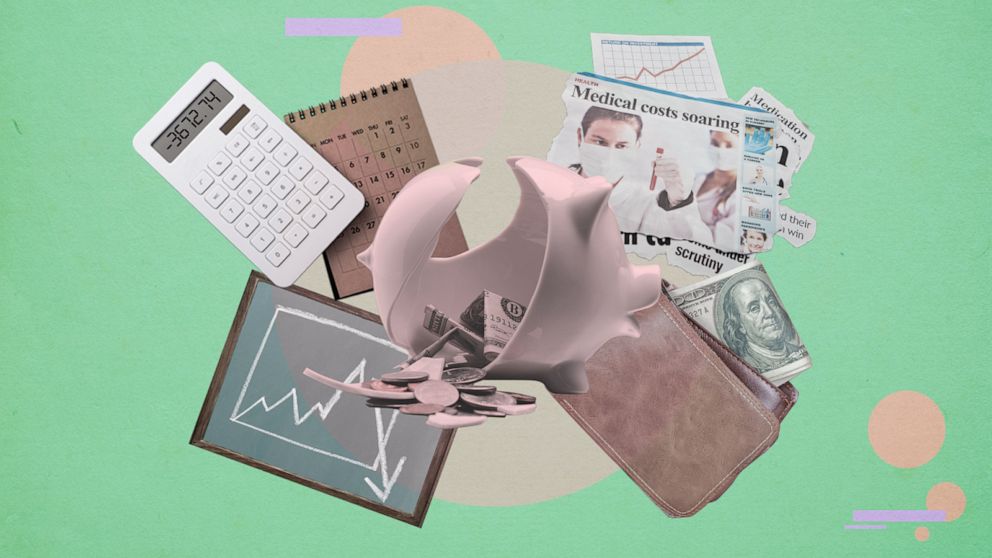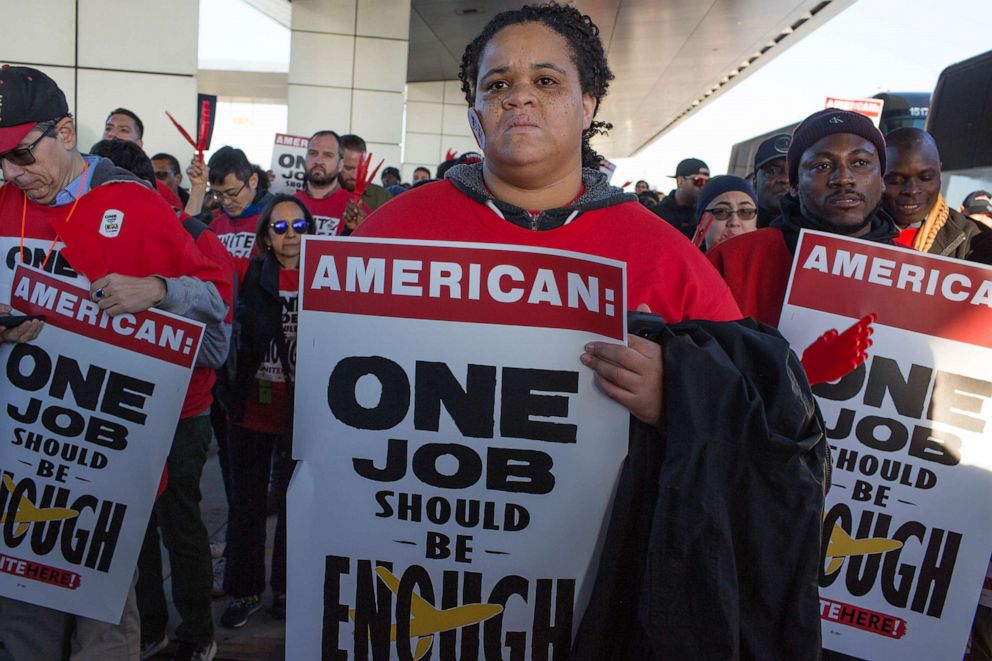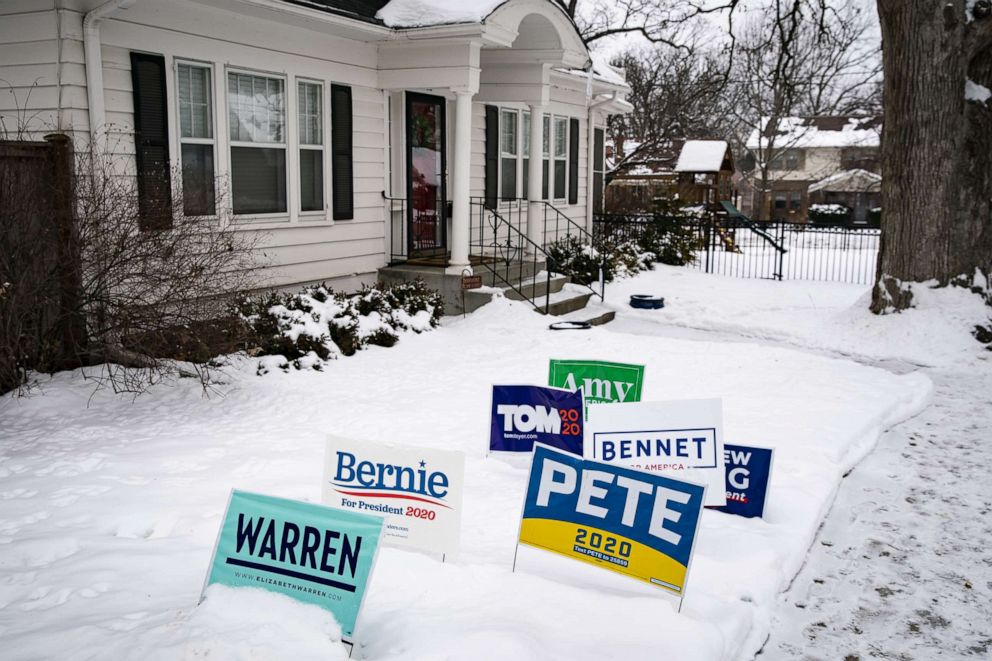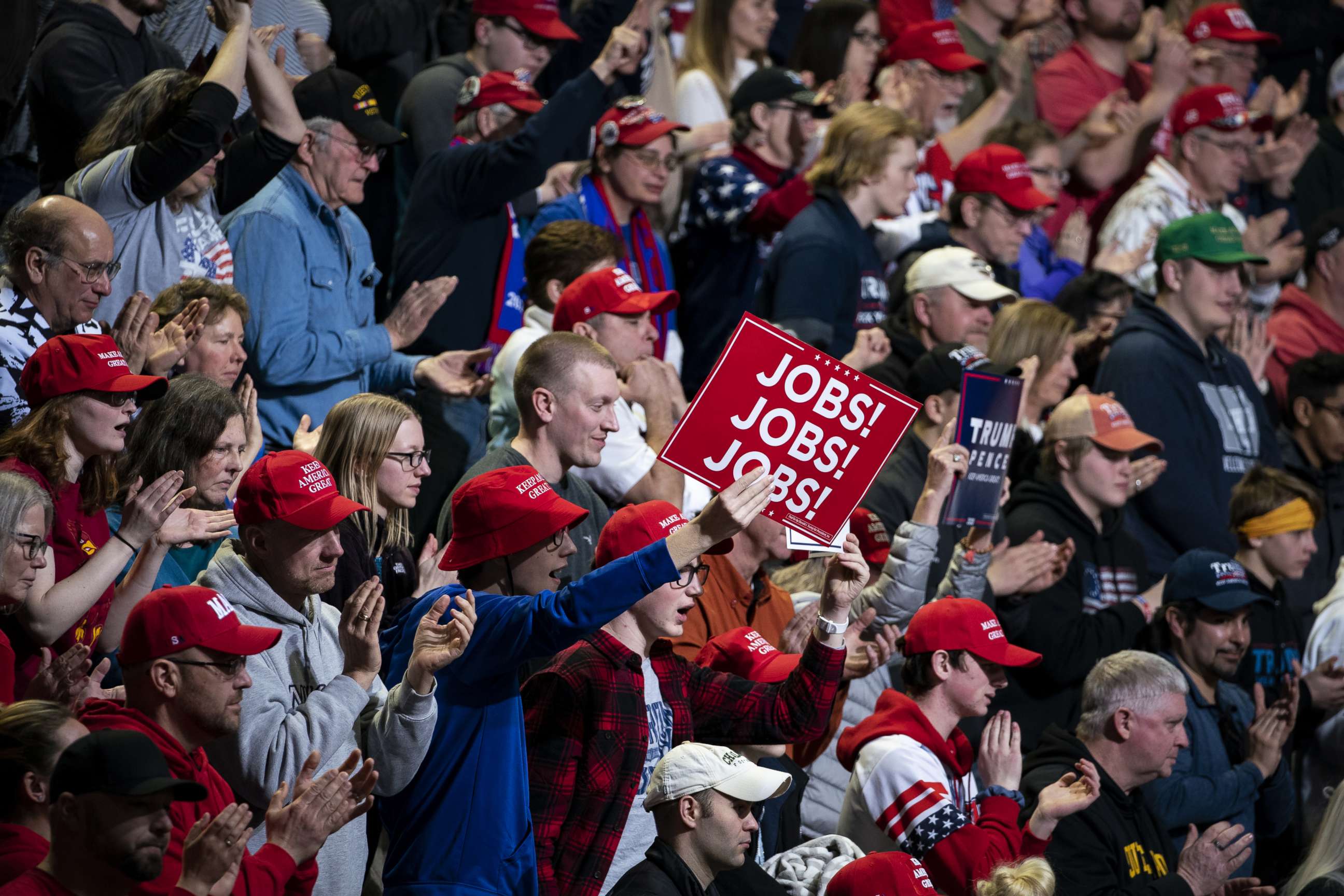Top 5 economic issues facing the middle class ahead of the 2020 elections

If you feel like you're running yourself ragged but aren't making headway, you're not alone.
The U.S. is experiencing one of the longest-running bull markets in its history, yet 40% of Americans recently said that they couldn't cover an unexpected $400 expense.
Even as the White House boasts about creating the strongest economy in decades -- with record-low unemployment rates and financial markets reaching new highs -- many middle class Americans say they feel left behind or find that they are “having to run harder to stand still.”
As the 2020 presidential election kicks up into high gear, here are what experts point to as some of the top economic issues that middle class families in America currently face. And with the financial unease that many people say they are feeling, these issues might have an impact on how they decide to vote.

Slow-growing wages
For most middle-class families without high-return investment accounts or trust funds to rely on, their main source of income are their jobs. If wages stagnate or don't keep up with the cost of living, middle-class families generally feel the impacts hard.
“Income growth of the middle class has been slower than for both those above and below them,” Richard Reeves, a senior fellow at the Brookings Institute and the director of its Future of the Middle Class Initiative, told ABC News. "Since around 1980, the household incomes of that middle-class group has grown by 40%, as opposed to about double that for those above and below.”
The definition of middle class varies widely among economists based on a handful of factors. Here it is roughly defined as the middle 60% of households based on income in order to be as inclusive as possible.
"It is quite clear that the growth in household income in the middle has been slow, slower than in the past, and slower than other groups in society," he said. "There’s a version of having to run harder to stand still for the middle class.”
For many, this means having to increase the number of hours worked, he added.

The slow growth in wages is the single biggest economic issue hampering middle-class families, according to Elise Gould, a senior economist at the left-leaning think tank the Economic Policy Institute.
"Many families are still feeling the after-effects of the Great Recession," Gould told ABC News, referencing the downturn following the 2008 financial crash. "We’ve seen the economy grow greatly. ... We’re still not seeing a full recovery in terms of wages and living standards.”
“Most American families get their income from work," she added. "So I think we need to strengthen work and the wages that they get."
A 2019 Congressional Research Service report found that inflation-adjusted wages “stagnated or fell” for those in the middle and bottom income percentiles between 1979 and 2018, while they rose for those at the top of the distribution. According to the report’s data, overall median real-wages increased approximately 6% between 1979 and 2018. Real wages at the top 90th percentile, however, increased by approximately 38% during that same time.
Surviving paycheck-to-paycheck
Almost 80% of Americans now live paycheck to paycheck, meaning they have no significant savings, according to Peter C. Earle, an economic researcher at the independent think tank the American Institute for Economic Research. Moreover, approximately a third of those people living paycheck-to-paycheck are categorized as in the middle class based on their income levels, and about 75% of them are in debt. That means the vast majority of Americans have no significant savings to speak of to guard against a rainy day.
"Americans were treated to a sort of controlled experiment in the implications of this when the government shutdown caught hundreds of thousands of government employees -- many of whom are among those who live paycheck to paycheck -- flatfooted," Earle told ABC News via email.
Sudden policy changes or other unexpected economic circumstance changes "could land all the harder on households with no emergency [financial] cushion," he added.
A lack of savings and living paycheck-to-paycheck is also an issue as Americans are currently living longer than ever, and may face outliving their retirement funds or "face additional shortfalls if their investment returns fall short," Earle said.
Soaring health care costs
Healthcare is routinely at the top of the list of voters' concerns and for good reason.
"Increasing cost of health care and concerns of health care and access to affordable health care can cause anxiety and issue whether you use it or not," Reeves told ABC News. "Having insurance or health care is important to your mental quality of life, whether you use it or not."
The costs are so high that 25% of Americans say they "skipped necessary medical care" in 2018 because they were unable to afford the cost, according to the Federal Reserve's most recent Report on the Economic Well-Being of U.S. Households. In addition, 20% of adults in the U.S. reported having major, unexpected medical bills to pay in 2018.
In fact, medical bills are the No. 1 cause of personal bankruptcy among Americans, according to a 2019 study from the American Journal of Public Health.
Healthcare costs can disproportionately impact the lives of middle class Americans because they generally don't have a Medicare safety net or are able to afford concierge health services like the wealthy.

Moreover, middle class Americans are paying a greater percentage of their earnings than ever before for health care, according to a report by The Commonwealth Fund, which said that rising premium and deductibles contributions have outstripped wage growth over the past decade.
"In terms of quality of life, health is obviously huge and important," Reeves said.
The erosion of free markets and spiking hidden costs
In addition to stagnating wages, depleted savings and soaring health care costs, some experts say issues with free markets disproportionately impact the middle class.
Thomas Philippon, a professor of finance at New York University's Stern School of Business, said the illusion of free markets and the hidden costs that the middle class picks up as a result cost the median American family approximately $5,000 a year.
"U.S. markets have become less competitive," Philippon told ABC News. "If you want to get a sense of what that means, my estimate is that if you could turn the clock back to 2000, if you could return the market to the degree of competition we had 20 years ago, you would essentially increase the income of the median family by about $5,000 a year."
"The U.S. used to be a place where access to internet was very cheap. Around [the year] 2000 it was one of the cheapest places in the world among advanced economies," he said. "Today, it is one of the most expensive, it is more than twice most countries in Europe."
The figures are similar for transportation and health care costs in the U.S. compared to Europe, Philippon said.
"Also, if the markets were more competitive, the whole economy would be more dynamic," he argued. "There would be more hiring, which would also bring up the wage."
A 2018 report from the Brookings Institute found that over the past few decades “there have been troubling indications that dynamism and competition in the U.S. economy have declined.” It found that in the airline sector, the top four first served 43% of the market in 1985, but that share had risen to 72% by 2017 due to decades of industry consolidation.
Philippon ties the decline in market competition to an increase in lobbying.
At the same rate that U.S. markets are becoming less competitive, Philippon said there has been a surge in companies "financing political campaigns."
"If you think about things that have changed drastically in the past 20 years in the U.S., the amount of lobbying and campaign spending and the fact that we have a decreasing competition," he said. "That's not a coincidence."
Work-life balance and respect
Though oftentimes harder to measure, experts said things like respect, work-life balance and family are increasingly becoming economic issues that cause disproportionate suffering for middle-class Americans.
"Time is the ultimate currency of economics," Reeves, of the Brookings Institute, told ABC News. "The issue of time is almost like the other side of the coin from the issue of wages and income: if you can only get a decent income if you put a huge amount of hours in."

"Work-life balance is not really so much an issue for the people at the top, although they complain about it a lot," Reeves said, noting that they can afford the childcare and other expenses.
He added that "family is an economic issue as well as a social issue," because "when people feel their wages are higher and likely to rise, they are more likely to have stable families."
"These issues around respect and relationships are also hugely important," Reeves said, even if these issues aren't easy to calculate in economic terms.
Working-class and middle-class families "sometimes feel they are looked down upon by policymakers and the coastal elite," Reeves added, noting that the there is a sentiment that the "almost-automatic respect" paid them is gone and "now that the attention is paid to people at the top."
While these issues impacting the middle class may be seen as social, they are often tied to economic status.
"The political economy of the middle class is not just about jobs and wages, it's also about communities and families and respect," he said. "They shouldn't be left off the table just because they are difficult to measure."
Ultimately, Reeves said, "that sort of middle-class angst and middle-class pain are reflective of all of those factors."



